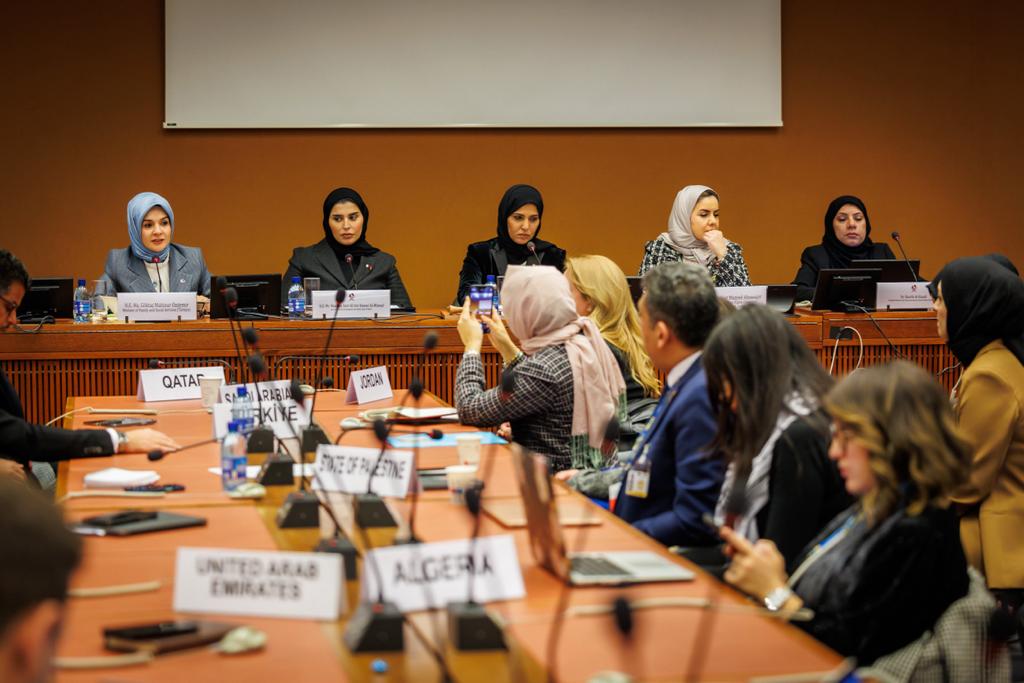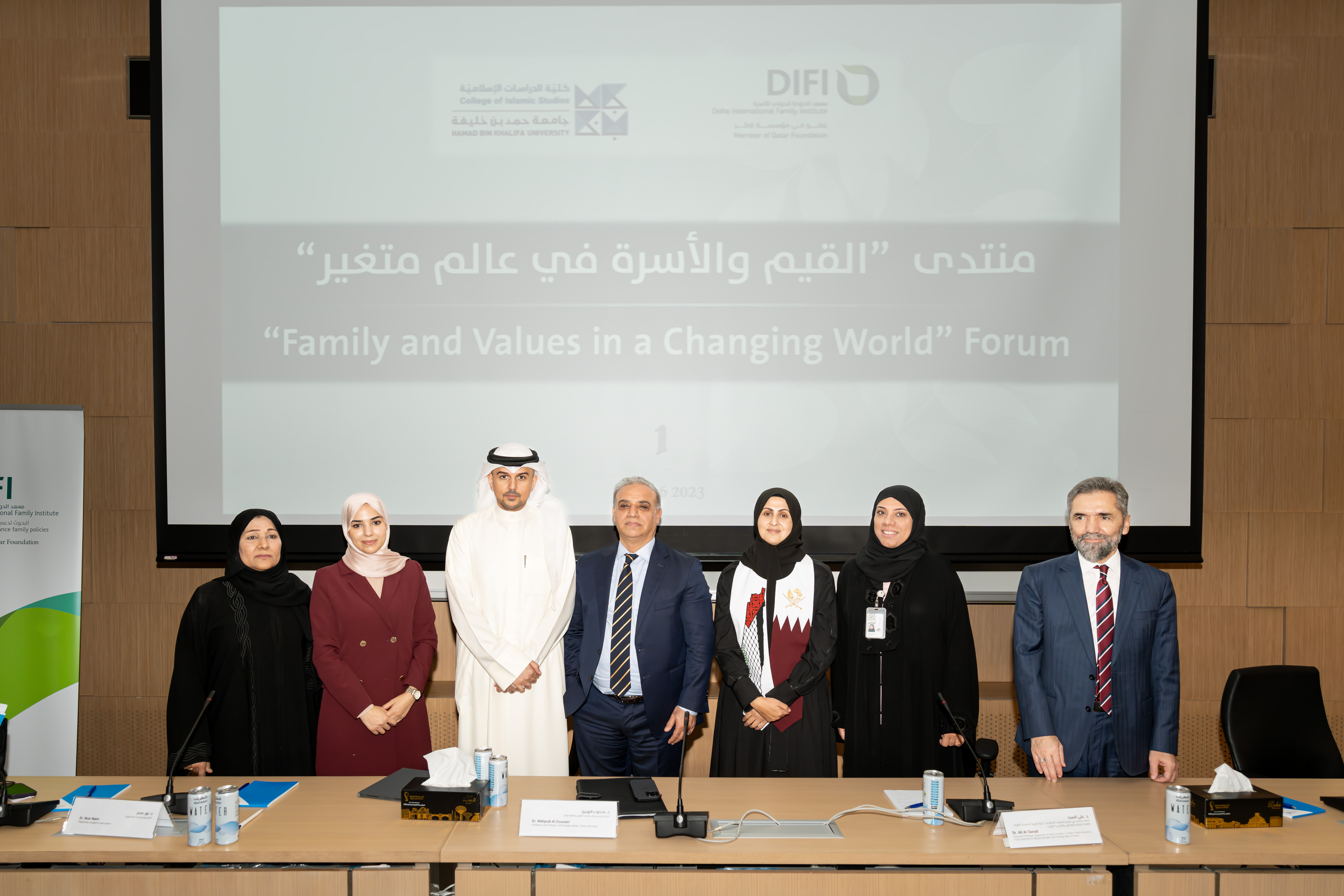
Our discussion with Dr. Ayesha Al-Qahtani about “The role of the father in instilling language, values, and religion in children.”
Addressed the Arab Spring and its impact on women’s rights and was held during the 57th session of the CSW at the United Nations headquarters.
This briefing is titled “The Arab Spring and Its Impacts on Women’s Rights”
The briefing was chaired by Her Excellency Noor Al Malki Al Jehani, Executive Director of DIIFSD and featured a three member panel comprised of international women’s rights experts including:
“Where women’s rights are concerned, it is evident that sociocultural attitudes have not changed at the same pace as institutional changes concerning education, employment, and decision-making. The purpose of is briefing therefore is to hear the ideas and opinions of the panel as to why these inconsistencies might exist,” said Al Malki.
The expert panel’s discussions focused on the fact that gender inequality remains one of the most important challenges to human development and sustainable peace, specifically how and why many women in the Arab world continue to be marginalised from the economy, society, politics, and decision-making.
Dr Nadine Naber addressed in particular how the issues of sexual violence, politics, and poverty have affected women during and following the Arab Spring. She stated that the current framework in promoting women’s rights is inadequate and that far too often the causes of violence against women and the violation of women’s rights are simplified. She also added that measuring women’s rights against a liberal, western human rights framework further contributes to these inadequacies because the Arab Spring has brought with it its own unique set of factors and influencers.
According to Dr Naber, poverty was the primary motive that made women join the Arab Spring in the first place but that the political and economic environment following the revolution has forced women away from the public sphere yet again. She urged the international community to not only call for political reforms but to also condemn the economic and political conditions that legitimize violence against women. “One cannot measure success on women’s rights by how many women are elected into these new political structures; in order to support women’s rights we need to work on promoting social justice”, she added.
Dr Sophie Richter-Devroe addressed the need to both “contextualize” and “historicize” violence against women in order to better understand its origins. She pointed out that cultures legitimizing violence against women have evolved from the dynamics of its political and economic environments, yet all too often religion and culture are blamed for it. She further highlighted how there seems to be a simplistic overlapping of Islam, patriarchy and violence, especially within the media and the international community.
When asked if she thought the Arab Spring has created better prospects for women’s rights, Dr. Richter-Devroe said, “I do not think the Arab Spring has created a significant opportunity to increase women’s rights nor help end sexual violence. Many of the same structural and economic issues that existed prior to the Arab Spring are still in place.”
Dr Rabab El Mahdi provided insights into the current situation for women in Egypt following the Arab Spring, stating that women’s rights must be examined not just at a cultural level but at a global, regional, and local level as well. She stated that in Egypt, the Arab Spring has presented opportunities for women’s rights. She noted that for the first time ever in Egypt, women were not afraid to take to the streets of Cairo.
In response to questions regarding whether or not violence against women had risen in Egypt since the Arab Spring, she stated that no data was available in the past but that for the first time ever data is finally being recorded. “The Arab Spring opened the doors for more violence against women, but also for more defence (against it)”, concluded Dr El Mahdi.
Following the briefing, attendees were given the opportunity to pose questions directly to the panellists. Discussions included the role of education and youth empowerment in combating violence against women, and the importance of women participating in the political process.
The Doha briefing is an annual event organised by DIIFSD at the United Nations since 2009. The main objective of this event is to inform and exchange views and expertise with Diplomats, UN representatives, and NGOs on important issues related to the family, women and development. The views presented during the briefing reflect the opinion of the speakers or attendees and are not necessarily endorsed by the DIIFSD.
The Institute is committed to encouraging knowledge exchange on issues related to the Arab family across an international and interdisciplinary network of researchers, policymakers, and service providers. The organisation has introduced various research, policy, and outreach programmes that address hard-hitting, real-life developments in family matters impacting the Arab world with the aim of building a well-rounded, healthy, and ultimately a more sustainable Arab society.



The Doha International Family Institute (DIFI) has launched the OSRA research grant in its sixth cycle which is a research grant on Arab families and family policy related issues.
Find Out More